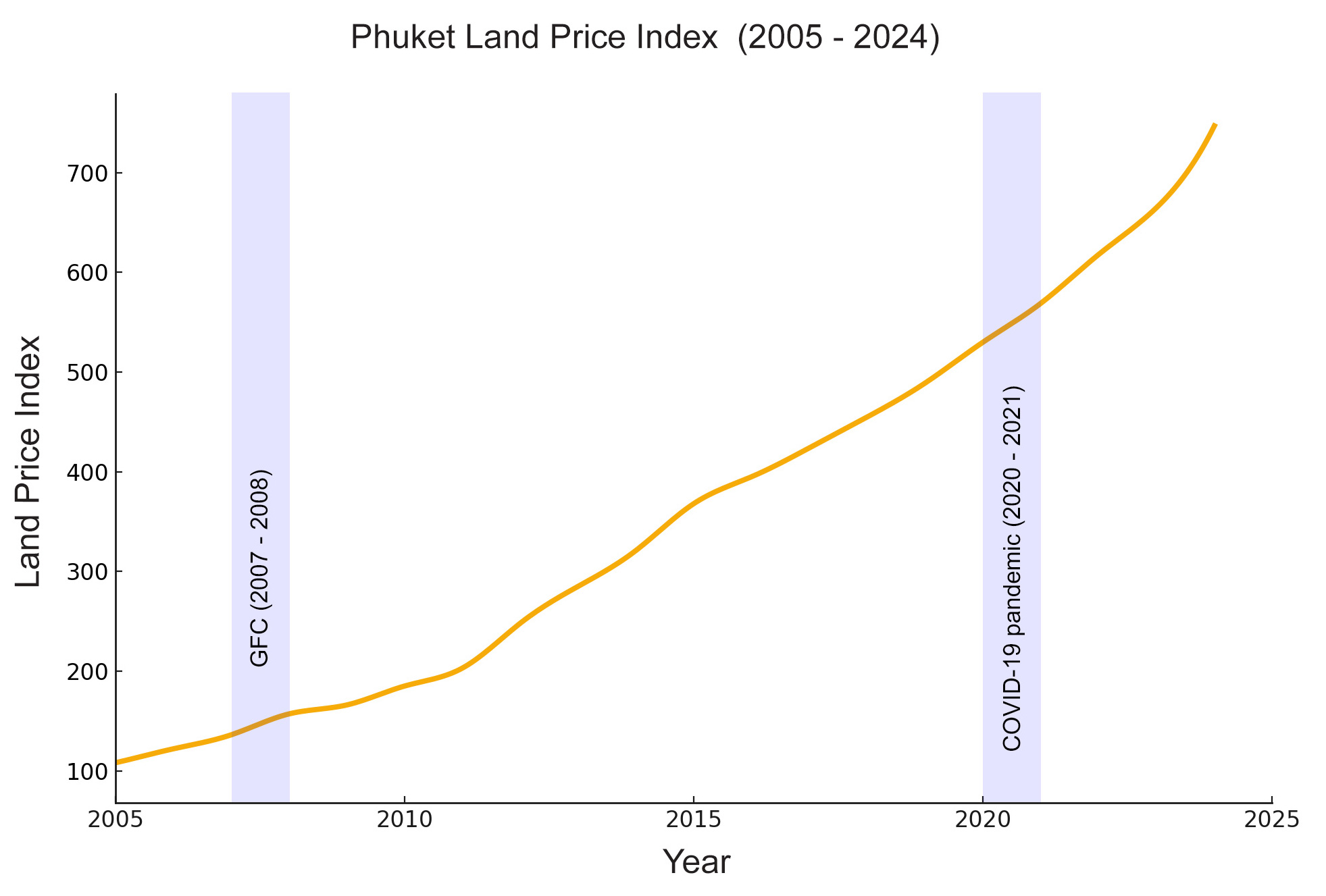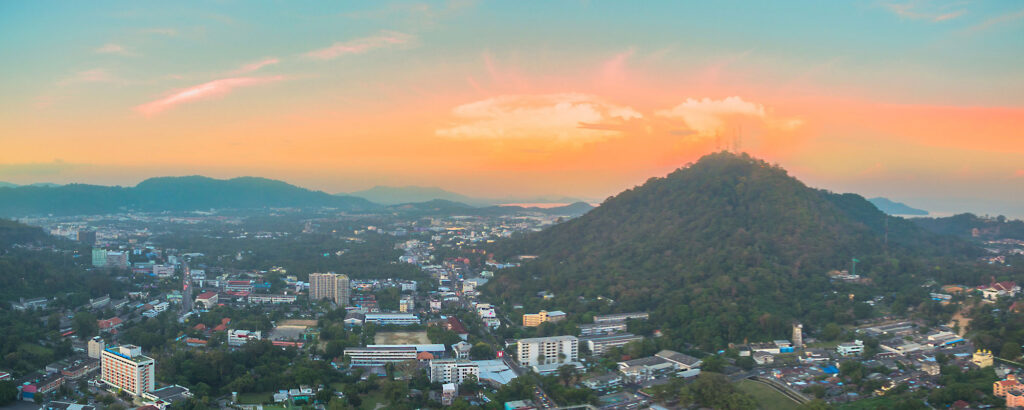Even before the United States launched its sweeping new tariffs in early April, 2025 was already emerging as a year defined by instability. The foundations of investor confidence were under pressure well before trade disputes escalated. The tariffs, while dramatic, are just the latest expression of a broader trend – a world in which volatility is now the default.
Since taking office in January, the current U.S. administration has introduced a level of unpredictability not seen in recent times. From open challenges to the Federal Reserve’s independence to defiance of Supreme Court rulings, foreign policy seemingly made on the fly, and of course, the recent implementation of aggressive new global tariffs, many policy conventions of the world’s largest economy that typically shape global financial markets have been cast aside. The result isn’t just downgraded global GDP forecasts, but a broader climate of uncertainty that is fundamentally altering how investors think and act.
In this article, we explore how Phuket’s property market is positioned to navigate this new era of volatility. With a predominantly cash-based structure, limited reliance on domestic credit, and enduring international appeal, Phuket offers lifestyle value and long-term resilience.
US Tariffs: Where We Stand Today
Initial U.S. tariffs imposed in early April ranged from 20% on the European Union to 104% on Chinese goods, prompting a swift response from Beijing. China imposed a 50% counter-tariff, later escalating to 125%, while some Chinese exports to the U.S. faced cumulative import taxes as high as 245% by late April.
Following intense market pressure (on 4 April, the U.S. stock market lost over $2.5 trillion in value, but more significantly, there was an alarming decline in U.S. Treasury valuations in the days that followed) the most influential non-state voices in U.S. finance warned that the country was heading toward a recession. The administration was forced to respond, announcing a 90-day suspension of its most aggressive trade measures on 9 April. Framed as a window for negotiation, the pause helped ease bond market volatility and signalled a degree of responsiveness to systemic risk, though underlying uncertainty remained unresolved.
Tensions eased further on 14 May, when the United States and China reached a partial agreement to roll back the most extreme levies. Under the new arrangement, U.S. tariffs on Chinese goods were cut to 30%, down from as high as 145%, while China reduced its duties on American imports to 10%, previously as high as 125%. Although this marks a meaningful de-escalation, tariff levels remain well above historical norms. U.S. retailers, including Walmart, have already warned of price hikes due to sustained import costs.
Regarding Thailand, its current 10% U.S. tariff remains in place for now, but is scheduled to rise to 36% by early July if negotiations fail, posing a significant risk to the country’s economic performance.
Rethinking Priorities: Stability Over Speculation
In today’s more unpredictable markets, high-net-worth investors are increasingly less focused solely on capital appreciation or yield. For many, the priority has shifted toward long-term positioning, combining security, lifestyle benefits, and asset durability. As volatility in financial markets rises, there is an understandable tendency to switch assets into more stable real estate, particularly in resilient markets with a diverse international buyer base. Phuket, with its unique mix of tourism, infrastructure, lifestyle appeal, and added stability due to high percentage of cash-based transactions, stands out as one of the few resort destinations meeting all these criteria.
Relatively low levels of leverage: A high proportion of transactions are cash-based, driven by high-net-worth buyers who generally require less financing, and by foreigners (these account for 60–70% of the market, according to the Bangkok Post) who are unable to obtain mortgages from Thai lenders. This structure provides insulation from interest rate shifts and lending restrictions, which typically affect more credit-dependent markets. In times of global volatility, this low reliance on credit helps steady demand and limit systemic risk.
What Really Drives Phuket Property
Since gaining international air activity, Phuket’s real estate market has been driven by international investors, but today that demand is broader and more diversified than ever. The buyer pool includes not only holiday-home seekers but long-stay families, digital professionals, and investors seeking a lifestyle hedge. In this context, two structural pillars matter most:
- A strong tourism sector
- Continued infrastructure development
Phuket already benefits from both. Post pandemic, tourist arrivals have rebounded, and demand for long-term accommodation has increased. According to the Bangkok Post, over 13 million visitors arrived in 2024, and this momentum has continued into 2025, translating into consistently strong demand for residential property.
Meanwhile, the island’s infrastructure and amenities – international airport, road upgrades, digital connectivity, healthcare, education, and shopping centres – are years ahead of most regional competitors. Even if global uncertainty causes short-term fiscal constraints or delays to major public works, the existing foundation is strong. In the long term, continued investment will be crucial to maintaining momentum.
One of Phuket’s structural strengths is the nature of its buyer base. Unlike short-term speculative markets, a significant share of property transactions in Phuket are driven by lifestyle investment – buyers acquiring assets for long-term use, not quick turnover. Whether it’s a second home, a future retirement base, or a family relocation, the intention is to hold the property and derive real utility from it. This type of demand is far less sensitive to short-term financial market volatility.
The amount of branded residential property in Phuket has accelerated massively over the past few years (accounting for 17% of supply, according to the May 2025 report by C9 Hotelworks), and the island is arguably now the leading branded real estate hub of Asia. Many of these developments are not only aligned with global hospitality standards but are also deeply integrated with themes of sustainability and wellness, two factors increasingly prioritised by international lifestyle buyers. Projects by operators such as Banyan Tree, InterContinental, and The Standard combine high design, professional management, and structured ownership with a focus on health, nature, and long-term liveability. In a climate of global volatility, these elements provide both emotional and practical reassurance, making branded residences one of the most resilient and attractive segments of the property market.
Uncertainties Over Legal Structures
For prospective buyers seeking freehold villas in Phuket, the most immediate concern in 2025 has not been global economic pressure, but growing uncertainty around legal ownership structures. While the underlying law has not changed (foreigners are still prohibited from owning land directly, and nominee-based company structures remain illegal) Thai authorities have significantly stepped-up enforcement since 2024.
Historically, many foreign buyers used Thai companies as holding vehicles to acquire land. Although still technically possible, this approach has become more expensive, more complex, and subject to far greater legal scrutiny. As a result, many prospective villa buyers are adopting a wait-and-see stance.
In 2024, the government announced a proposal to extend the maximum lease term for foreigners from 30 years to 99 years, a move that would offer a simpler, more transparent path to long-term villa ownership without the need for corporate structures. While the proposal has been welcomed, similar initiatives have been floated in the past without being enacted. Until there is clarity on whether the 99-year lease model will become law, buyer hesitation is likely to persist.
However, Phuket remains well positioned with a wide selection of villas on long-term renewable leases, often within branded developments. At the same time, the extensive supply of freehold condominiums offers simple and perpetual ownership for foreign buyers.
As of Q1 2025, condominiums account for nearly 83% of Phuket’s total residential supply, according to C9 Hotelworks, with 33,704 units across 124 projects. While this category includes both leasehold and foreign- freehold units, the significant availability of freehold condominiums means Phuket will be able to absorb some demand from buyers uncertain about villa ownership structures.
While there are still villa buyers proceeding with company ownership structures, which become more viable at the luxury end of the market, the villa sector as a whole is increasingly shifting toward cleaner, simpler structures.
Volatility Doesn’t Always Mean Downturn
While increased global volatility often rattles equity markets, it doesn’t necessarily spell trouble for Phuket’s property sector, and in some cases, it can increase demand. Real estate, particularly in lifestyle-led markets, is widely seen as a safe haven asset when more liquid investments become unstable. Phuket, with its established infrastructure and international appeal, fits this profile well.
A clear example was the surge in Russian investment following the outbreak of the war in Ukraine. As political and financial risks escalated at home, many sought out stable, internationally accessible destinations, and Phuket saw a marked increase in demand. Similar capital redirection can occur in times of currency instability, capital controls, or banking sector volatility.
Beyond the financial rationale, lifestyle remains a major driver. Many buyers are not purchasing property in Phuket purely for yield or appreciation – they are also buying into a lifestyle. This kind of demand tends to persist even in unstable global conditions.
Putting Tariffs in Perspective: Global GDP Still Growing
While the new U.S. tariffs have triggered volatility, it’s important to view them in context. The broader economic environment, as measured by global GDP, remains significantly stronger than during the Global Financial Crisis. In 2009, global GDP contracted by 0.6% (source: IMF World Economic Outlook 2010), marking one of the sharpest post-war declines. By contrast, the IMF projects global growth of 2.8% in 2025, even after accounting for the recent downgrades linked to tariff escalation. This suggests that while uncertainty is elevated, the underlying macroeconomic backdrop remains far more robust than during previous shocks, and notably, Phuket property prices still increased even through the 2009 global downturn!
The resilience of the Phuket property market is reflected in its land prices, which closely track overall property values. As shown in the chart below, land prices have continued to rise through past crises, including the Global Financial Crisis and the COVID-19 pandemic.

Source Land Price Index -Thai Real Estate Research and Valuation Centre, Agency for Real Estate Affairs Co., Ltd.
Note on the Data:
The chart above shows Phuket land price trends from 2005 to 2024. While there is no fully reliable independent data source for residential property price levels in Phuket, largely due to large percentage of villa acquisitions via company takeovers, which are not recorded as real estate transfers, land price indices provide a valid proxy. Over time, land values in key resort areas have closely tracked overall market performance and serve as a useful indicator of long-term price resilience.
A Resilient Market in a Shifting World
Phuket’s property market has fundamentally different drivers from domestic markets. It is tourist-driven, cash-based, internationally funded, and lifestyle-oriented – characteristics that help insulate it from credit shocks and short-term financial volatility
However, we need to recognise that demand from foreign investors seeking freehold villas has been dampened by a combination of stricter enforcement of regulations around corporate holding structures and uncertainty about future legal reforms. While the use of Thai companies to acquire land is still technically possible, it has become more costly and complex. At the same time, the government’s proposal to introduce a 99-year lease model has prompted many prospective buyers to adopt a wait-and-see approach, delaying decisions until there is clarity on whether such changes will become law.
While tourism is the primary driver of Phuket’s property market, the island’s long-term appeal depends heavily on supporting infrastructure, which becomes increasingly important as the island becomes more developed. Pending projects cover waste management, airport expansion and transport infrastructure – including Phuket Island Light Rail Transit (LRT), Kathu–Patong Tunnel and the Muang Mai–Koh Kaew–Kathu Expressway. In this context, the most significant risk posed by the new U.S. tariffs is not to tourism directly, but to the government’s capacity to continue funding large-scale infrastructure projects.
Thailand currently faces a baseline U.S. tariff of 10%, which will rise to 36% if a new agreement is not reached before the moratorium expires in July (source: Reuters). In response to this escalating risk, Thailand’s NESDC downgraded its 2025 GDP forecast from 2.8% to 1.8% on 19 May, citing the impact of tariffs and growing global trade uncertainty (source: Bangkok Post). A slowdown in Thailand’s economy could place pressure on public finances, leading to delays or reductions in infrastructure investment, with potential knock-on effects for long-term real estate confidence in Phuket.
But we should have little doubt that the government of Thailand is fully committed to long-term infrastructure development in Phuket, and the prospects for the island’s property market look bright. With thriving tourism, exceptional lifestyle quality, and a broad global buyer base, Phuket continues to stand out as a world-leading resort market. In an environment defined by unpredictability, these structural strengths offer a degree of insulation that few destinations can match.



